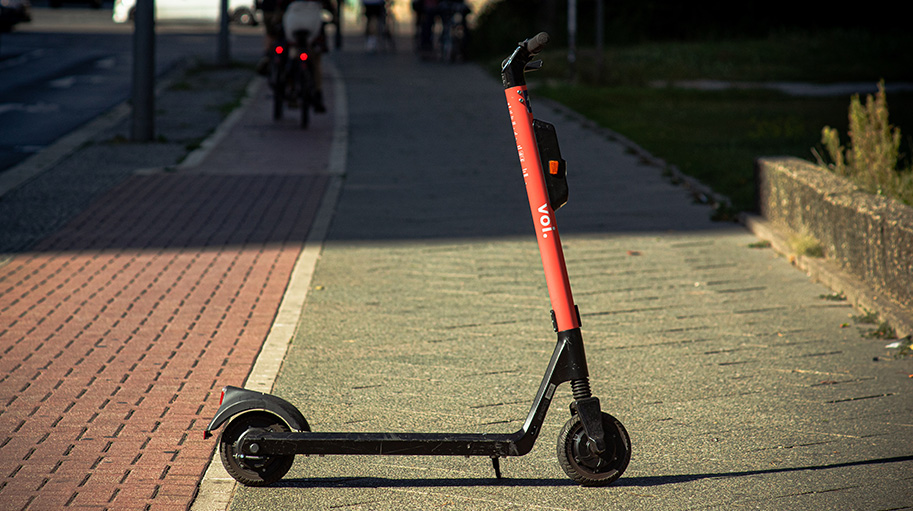Could public transport be an alternative to electric scooters?

ITRL launches a new project with Voi and Västtrafik to investigate how and if public transport could be a realistic alternative to e-scooters.
As electric scooters rolled out in cities, so did the controversy following them after criticism regarding parking, reckless driving from users, and simply being too many of them. Today there are several restrictions put in place by authorities to control these scooters, such as forced monopolies or agreements on where to park them. A new project, called Elkoll, will investigate if trips made with an electric scooter could be compared to public transport in terms of time, cost, and route availability, to see if public transport could be a realistic option to scooters. Unlike previous studies, which are usually done with surveys, this project will examine trip data from Gothenburg to find patterns on how the scooters are used.
Due to their convenience and ease of use, scooters may substitute or complement other types of transport, such as walking, cycling, public transit, or driving. Combining rider-behaviour insights and data provided by the public transport authority, analysis on the complementarity, or otherwise, of these two modes of transport could be drawn out.
“Through the comparison of e-scooter ride patterns with that of the public transit network and schedule, I hope the project could carry enough insight that it may contribute towards decisions that meaningfully improve public-transit offerings whilst allowing enough room for private initiatives, such as the e-scooter operator, to fill-in any gaps which are unfeasible for the public transport authority to fill”, says David Micallef, student research assistant working with the project.
“I think that the results may enhance the many other pieces of information that both commissioning agencies use to strategize over their product offerings”, Micallef continues. “In the broader picture, the insight into movement behaviour of different demographics may also aid in sustainable urban planning decisions that facilitate and encourage multi-modal mobility.”
The project is planned to be finished by December 2022.

